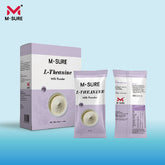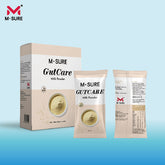Goat Milk Powder vs. Cow Milk Powder: Which is More Nutritious?
by
BiotechAusway
19 Sep 2025
Both goat milk powder and cow milk powder provide excellent nutrition, but they differ in protein structure, digestibility, and micronutrient content. Here’s a side-by-side look:
1. Protein Structure & Allergenicity
-
Goat Milk Powder – Smaller protein molecules, with α-S1 casein only 1/3 of cow milk, making it closer to human breast milk. It is easier to digest and absorb and less likely to cause allergies.
-
Cow Milk Powder – Contains higher levels of β-lactoglobulin, which may trigger allergies in some people. However, it offers a higher total protein content overall.
2. Fat Composition & Digestibility
-
Goat Milk Powder – Fat globules are 30–50% smaller than cow milk and contain 35% more medium-chain fatty acids (MCFAs). These are absorbed directly without bile emulsification, making it gentler on digestion.
-
Cow Milk Powder – Provides slightly more omega-3 fatty acids, but its thicker fat globule membranes mean slower digestion.
3. Minerals & Vitamins
-
Calcium & Phosphorus – Goat milk has a 50% calcium absorption rate (vs. 30% for cow milk) and a balanced Ca:P ratio, similar to breast milk.
-
Iron & Folate – Cow milk has higher levels of iron and folate, but goat milk offers better iron bioavailability.
-
Vitamin Differences – Goat milk is richer in Vitamin A and B2, while cow milk provides more Vitamin D.
4. Best Suited For Different Groups
-
Goat Milk Powder – Recommended for allergy-prone individuals, premature infants, those with weak digestion, or lactose intolerance.
-
Cow Milk Powder – Ideal for bone development, budget-conscious consumers, or those needing extra iron and folate.
Conclusion
Both goat and cow milk powders are high-quality nutritional sources, and the right choice depends on individual needs:
-
✅ Goat Milk Powder – Superior for digestibility and lower allergenicity.
-
✅ Cow Milk Powder – Higher in iron, folate, and more cost-effective.






